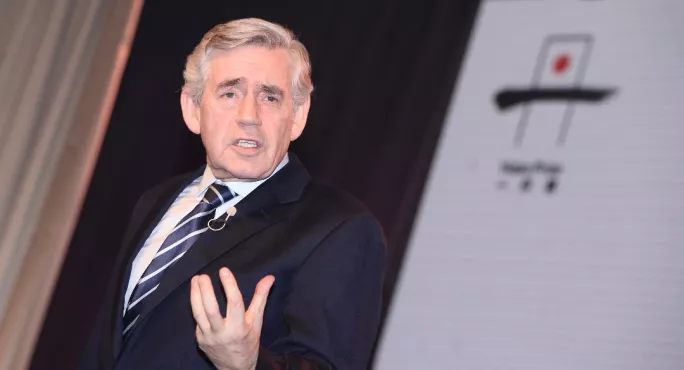Gordon Brown has set out four revolutions he believes are needed to secure a good quality primary and secondary education for every child in the world by 2030.
The former prime minister told the Yidan Prize Summit in Hong Kong that fundamental change was needed in education funding, the status of teachers, the use of technology and how education is delivered in parts of the world.
Mr Brown, who is the United Nations special envoy for global education, said that currently 260 million children are not going to school, 400 million will leave education without any primary-level qualifications, and 800 million will not have any qualifications at all.
This was despite the promise in the Millennium Development Goals that by 2015 every child would enjoy a primary education.
'Universal education for all'
Mr Brown said: “This is a crisis. It’s an emergency. We need a timetable and a deadline to solve it. We need a plan to get to 2030 with universal education for all.
“I suggest today we need a revolution in funding, a revolution in how we give status to our teachers, a revolution in the application of technology to education, and a revolution delivering particularly in the most difficult places in the world.”
He urged countries to claim from a new fund, the International Financial Facility for Education.
Mr Brown described this as “the biggest single fund, $10 billion we want to provide for these countries. There are 700 million children denied the chance of a proper education where we could if the world community comes together to invest in these children”.
The summit, which saw two laureates receive the $4 million annual Yidan prizes for education research and education development, was on the topic of "Educating for the future: how?".
Mr Brown said the classroom “has got to be something that is unique to the 21st century, and not just a throwback to the 19th century”.
Education for the future
He added: “Children not just learning to remember in a world where we have computers and digital technology. Children are learning not just to remember, but learning to understand.
“Children learning how to learn, and that means the teacher becomes the tutor, becomes the guide by your side, becomes not so much the sage on the stage but the coach that is giving advice and tutoring and help and one-to-one support to every child so they can learn at their speed and they can learn to the best of their potential.”
Mr Brown also outlined how technology could be harnessed to bring education to “every remote part of the world”, and “help those people with disabilities to make the most of their capabilities”.
Mr Brown told the summit that 2030 was the deadline to provide quality primary and secondary education for all, but warned that “today there is not a hope that we can achieve it without fundamental change”.
He said that if nothing changes, then by 2030 it is projected there will be 200 million children not going to school, 400 million whose education ends at primary, and 800 million who leave education with “no qualifications that are of any great use to them in the workplace”.
He said that as well as the four revolutions he outlined, a “revolution in willpower” was also required to change this trajectory.




